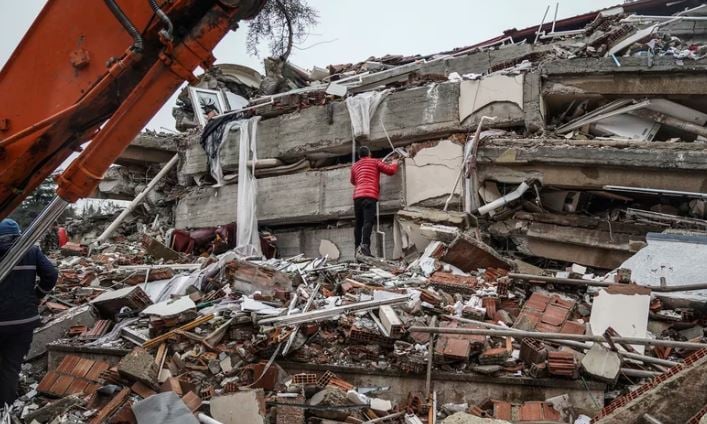The economic losses suffered by Turkey and Syria as a result of the devastating earthquake that struck them are enormous, exceeding $2 billion, and “may amount to $4 billion or more due to poor insurance coverage in the affected areas,” according to forecasts by the credit rating agency “Fitch”.
The 7.8-magnitude quake killed more than 20,000 people in Turkey and Syria, along with thousands more trapped under the rubble of demolished buildings.
It was the deadliest earthquake in the region since 1999.
Fitch said global reinsurers would bear most of the insurance payments due to the eventual earthquake.
Insurance coverage is likely to be low in most of the impacted parts of Turkey and Syria.
“The Turkish Disaster Insurance Complex was established after the 1999 Izmit earthquake to cover earthquake damage to residential buildings in urban areas. However, it does not cover human losses, liability claims, or indirect losses, such as business interruption.”
“Moreover, earthquake insurance coverage is technically mandatory in Turkey, but it is not often applied in practice. As a result, many residential properties are unsecured, particularly in many affected areas, where incomes of low-cost households are restricted.”
Read: Deadly 7.8 magnitude earthquake hits southeast Turkey
Insurance coverage in the inflicted parts of Syria is likely to be similarly low, especially given the economic effects of the country’s civil war.
Are insurance companies affected?
Fitch expects the insured losses to be significantly lower than the actual losses, possibly amounting to only $1 billion compared to losses exceeding $4 billion.
“The vast majority of insured losses will be covered by reinsurance, but the amount waived is likely to be minimal in the context of the global reinsurance market, with no implications for reinsurers’ ratings,” it said.
Fitch says most insurance payments will be borne by global reinsurers.
Turkey’s economy. Where to?
Turkey is suffering from high inflation and a collapsing currency due to the adoption of unconventional economic policies by its president, Recep Tayyip Erdogan. His calls for lower interest rates sent inflation to a 24-year high of 85 percent last year, and the lira has fallen to ten percent of its value against the dollar over the past decade.
The quakes are expected to damage production in the damaged areas, which account for 9.3 percent of Turkey’s gross domestic product.
Data from the Istanbul Energy Exchange showed Turkey’s electricity use fell 11 percent on Monday from the previous week, reflecting the impact on consumption.
These damages will weigh on economic growth this year.
Officials and economists expected that economic growth in Turkey will be damaged this year as a result of the repercussions of the earthquake.
Experts said Turkey’s major quakes would add billions of dollars in spending to Ankara’s budget and cut economic growth by two percentage points this year. The government will be forced to undertake massive reconstruction efforts ahead of crucial elections.
“There will be billions of dollars in damage,” a senior official told Reuters, adding that a quick reconstruction of infrastructure, homes, and factories would be needed.
The coming weeks, which will see bodies recovered and rubble cleared, are likely to overshadow the run-up to the May 14 presidential and parliamentary elections, which pose the toughest challenge to President Recep Tayyip Erdogan in his two decades in power.
For more on the economy, click here.








